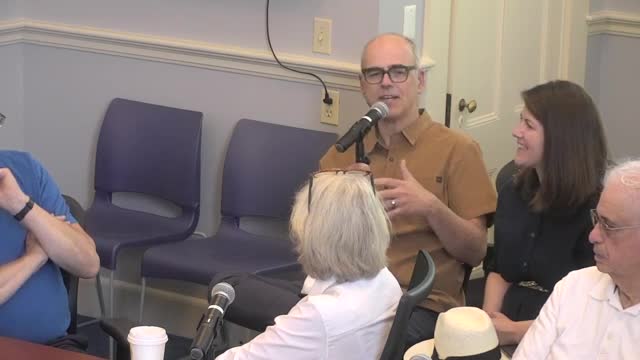Community unites for affordable housing amid pushback
June 26, 2024 | Town of Concord, Middlesex County, Massachusetts

This article was created by AI summarizing key points discussed. AI makes mistakes, so for full details and context, please refer to the video of the full meeting. Please report any errors so we can fix them. Report an error »

Community Engagement and Housing Development Highlighted in Recent Concord Meeting
In a recent government meeting, community leaders emphasized the importance of collaboration and progress in Concord, particularly in the areas of diversity, equity, and inclusion (DEI) initiatives, as well as affordable housing development.
A representative from the DEI commission noted the significant turnout from various community sectors, including libraries, churches, and museums, during a recent event aimed at fostering inclusivity. While acknowledging the pushback against such initiatives, the speaker encouraged the community to remain steadfast in their efforts, despite the \"coded\" resistance that often surfaces in discussions about divisive topics.
Julie McClure from the Concord Housing Development Corporation reported on ongoing efforts to create and preserve affordable housing. She highlighted two Requests for Proposals (RFPs) currently under review, one of which pertains to a site on Old Marlborough Road. However, progress on a twelve-acre parcel adjacent to the MCI Concord site is currently on hold pending further collaboration with state officials following the decommissioning announcement of the MCI facility.
Additionally, discussions surrounding potential amendments to the Affordable Homes Act were raised, particularly regarding the relaxation of deed restrictions at Junction Village. This change could facilitate the integration of affordable housing within broader housing developments, rather than segregating them.
Pat Nelson, co-chair of the middle school building committee, provided an update on the construction of a new middle school, reporting that the project remains on schedule and within budget. He also noted the positive collaboration with the municipal light plant on solar initiatives and addressed inquiries regarding the naming of the new school, clarifying that the committee does not have jurisdiction over that decision.
The meeting underscored a collective commitment to advancing community initiatives and addressing housing needs, while navigating the complexities of public sentiment and legislative processes.
In a recent government meeting, community leaders emphasized the importance of collaboration and progress in Concord, particularly in the areas of diversity, equity, and inclusion (DEI) initiatives, as well as affordable housing development.
A representative from the DEI commission noted the significant turnout from various community sectors, including libraries, churches, and museums, during a recent event aimed at fostering inclusivity. While acknowledging the pushback against such initiatives, the speaker encouraged the community to remain steadfast in their efforts, despite the \"coded\" resistance that often surfaces in discussions about divisive topics.
Julie McClure from the Concord Housing Development Corporation reported on ongoing efforts to create and preserve affordable housing. She highlighted two Requests for Proposals (RFPs) currently under review, one of which pertains to a site on Old Marlborough Road. However, progress on a twelve-acre parcel adjacent to the MCI Concord site is currently on hold pending further collaboration with state officials following the decommissioning announcement of the MCI facility.
Additionally, discussions surrounding potential amendments to the Affordable Homes Act were raised, particularly regarding the relaxation of deed restrictions at Junction Village. This change could facilitate the integration of affordable housing within broader housing developments, rather than segregating them.
Pat Nelson, co-chair of the middle school building committee, provided an update on the construction of a new middle school, reporting that the project remains on schedule and within budget. He also noted the positive collaboration with the municipal light plant on solar initiatives and addressed inquiries regarding the naming of the new school, clarifying that the committee does not have jurisdiction over that decision.
The meeting underscored a collective commitment to advancing community initiatives and addressing housing needs, while navigating the complexities of public sentiment and legislative processes.
View full meeting
This article is based on a recent meeting—watch the full video and explore the complete transcript for deeper insights into the discussion.
View full meeting
